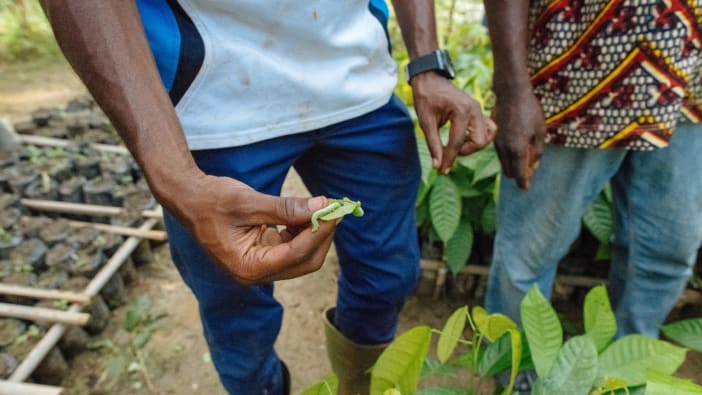Severe disease problems on bananas worldwide are making it increasingly difficult for smaller producers to continue cultivating this crop. An enthusiastic banana specialist has dedicated his life to working on producing excellent quality bananas, aimed at improving production and disease resistance for small banana producers. Now, five new hybrid plants are available from Honduras. They are all semi-dwarf, resistant to nematodes and most common diseases and are very productive:
FHIA-01 – can be used as both a sweet and cooking banana
FHIA-03 – a cooking banana which can be harvested one hand at a time over two months (see photo)
FHIA-17 – a sweet banana which ripens naturally to yellow
FHIA-18 – an apple flavoured banana which ripens naturally to yellow
FHIA-25 – a cooking banana which has proved more popular than boiled green plantains
Dr Phil Rowe has generously offered to help provide samples of these new hybrid bananas to Footsteps readers. They are sent as tissue cultured plants which are readily potted by following the instructions included in each shipment. Normally the packages of bananas cost US $80 to send, but for organisations and farmers unable to pay this, Dr Rowe hopes to be able to send them free of charge. If bananas grow well in your area, please write with brief details of your work and how you might be able to distribute suckers to farmers in future.
Dr Phil Rowe, FHIA, Apartado Postal 2067, San Pedro Sula, Cortés, Honduras E-mail: [email protected]








